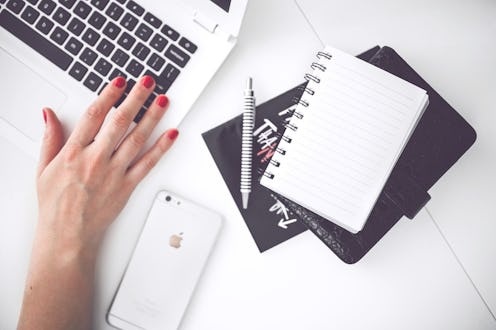Life
7 Reasons Why Working Less Accomplishes More

From the time we're kids, we're taught to associate a lot of work with being "good" work. It's a totally foreign idea to consider that overworking is actually less effective. If we don't do well on a test, we were asked how long we studied for it, not how completely we understood the information. If someone isn't performing well enough at work, it's usually chalked up to being lazy or unbalanced, never feeling pressured to work too much and inadvertently sabotaging it.
Your work is a product of you, and if you want your work to be good, you have to take care of yourself first. Nothing productive is happening when you're exhausted, sick or stressed all of the time, and while some of the causes for those things are out of our control, there's one that isn't, and it's being able to put your foot down when it comes to being overworked — more often than not, nobody is putting that pressure on you but yourself.
So here is why letting up on the workload, closing the laptop (and keeping it closed) past 5 p.m., taking your vacation days and turning your email notifications off on your phone over the weekend isn't giving up on work — it's actually the (counterintuitive) way to working smarter and better. That is to say: not only will your professional life improve when your health does, but your life will be about your life, and your work will be an aspect of it — not the entirety of it.
More Work Doesn't Mean Better Work
Often, it's things that we do most effortlessly and simply that end up with being the best product. It requires a combination of letting it flow and then revising and editing the next day with fresh eyes.
The Pressure To Overwork Is Usually Self-Created
We always think that we have to overwork because otherwise our bosses will be displeased or it's simply "what the job requires," but in reality, it's always your own doing (and your own issue to undo, after all).
People Who Work Less, Work Better
Tons of research (as well as philosophy and psychology) has proven that working less is actually much more effective — yet, it's theorized that we continue overworking as it quells our anxiety about being "failures," or serves as a noble-seeming form of escapism from our lives.
If You Think About It Too Much, You Ruin It
As with everything in life, overthinking does not actually make it better, it only complicates it further, or distracts you from the main point at hand.
Your Work Is Not More Important Than You
Your being, your consciousness, your (self) needs to come before you work, with rare exception. Sure, there are moments where a late night email needs to be answered and an afternoon needs to be spend working rather than napping, but in terms of your habits and routines, work cannot come before yourself.
You Can't Wait For The Day You Have Less To Do — You Have To Learn To Do It Now, With The Workload That You Have
Most people overwork because they assume that if they get it done now, they'll be able to relax and take it easy in the future. This is not so. If you develop the tendency to do it now, it will only be harder to break out of later. You'll find more work to do, or something else to distract you from actually living.
Make Your Mantra: "The Work Will Never Be Over, But My Life Will Be Eventually"
There will always be more work. There will always be more to do. You will never leave the office or close the computer feeling like you did everything you possibly could (you can't in a day!) You have to become comfortable with this, and remind yourself that the workload is infinite, but your life is not. Prioritize accordingly.
Images: Giphy (3); Pexels